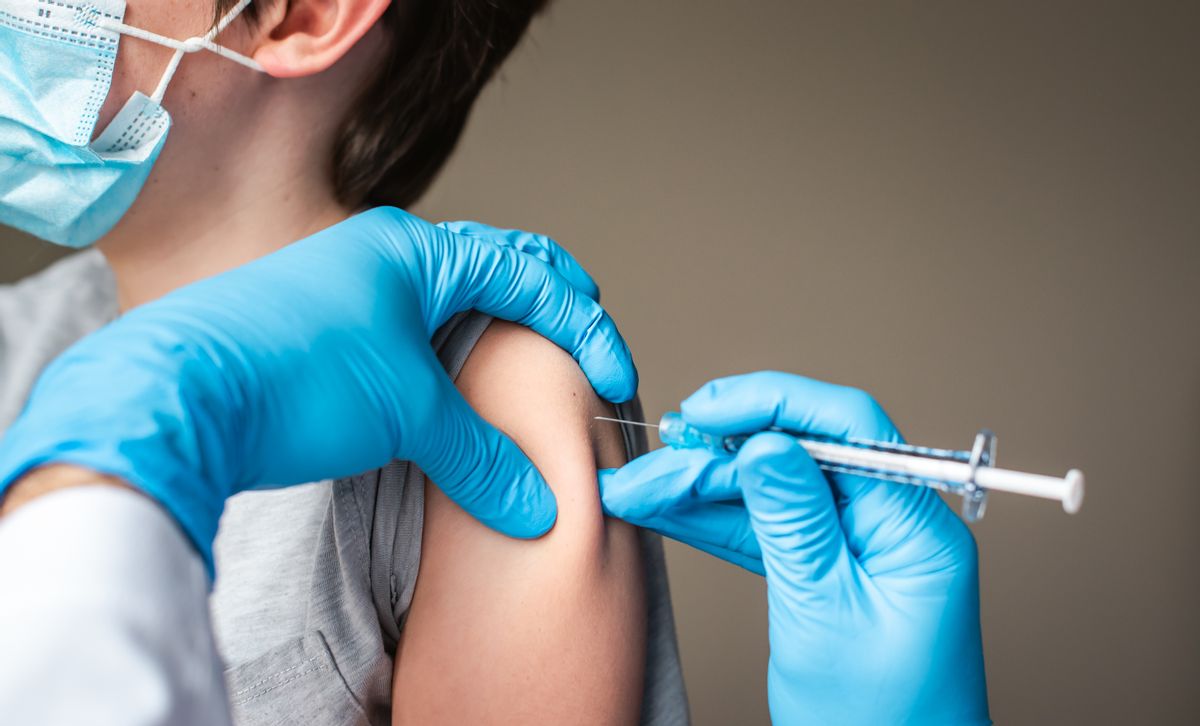State of Vermont Can Vaccinate Children Without Parental Consent?

Vermont’s Supreme Court ruled that “schools in the state can begin vaccinating children without the knowledge or consent of their parents.”
On August 12, 2024, an X account claimed the Vermont Supreme Court had ruled that schools were now allowed to vaccinate children without the knowledge or consent of their parents (archived).
The X post had amassed more than 346,000 views, 6,100 reposts and 5,600 likes as of this writing.
Similar posts appeared elsewhere on X, and on Facebook and Reddit.
However, the rumors were wrong, therefore we rated this claim “False.”
On July 26, 2024, the Vermont Supreme Court ruled that an individual family from Brattleboro, Vermont, could not sue their child’s school after their son was accidentally vaccinated during a COVID-19 vaccination clinic at the school in November 2021.
According to the ruling, the father spoke to the school’s principal a few days before the clinic, reiterating that his child was not to be vaccinated. The principal acknowledged this and confirmed his son would not be vaccinated without the parents’ consent.
However, on the day of the clinic, “an unidentified worker” incorrectly gave the child the name tag of another student. As a result, the child was vaccinated with the Pfizer BioNTech vaccine and the family then sued the school district.
In July 2024, the court said that, under federal law, the lawsuit could not proceed. Citing the Public Readiness and Emergency Preparedness (PREP) Act of 2005, the court ruled the school was immune from prosecution. Indeed, the PREP Act does provide “liability immunity to certain individuals and entities (Covered Persons) against any claim of loss caused by, arising out of, relating to, or resulting from the manufacture, distribution, administration, or use of medical countermeasures (Covered Countermeasures), except for claims involving ‘willful misconduct’ as defined in the PREP Act.”
In other words, during public health emergencies, the PREP Act protects people whose job it is to implement measures — such as vaccines and vaccination campaigns — designed to counteract these emergencies, from legal consequences.
The COVID-19 pandemic in the U.S. triggered the declaration of a public health emergency from January 2020 to May 2023, which meant that in November 2021, when the boy was accidentally vaccinated, the country was in a public health emergency. This meant that the people responsible for mistakenly vaccinating him were covered by liability immunity under the PREP Act.
In order for the lawsuit to have proceeded, the plaintiffs needed to prove the workers were guilty of “willful misconduct,” or the incident happened outside the timeframe of this public health emergency.
Here is how the PREP Act defines “willful misconduct” in the context of a public health emergency:
Willful misconduct is misconduct that is greater than any form of recklessness or negligence. It is defined in the PREP Act as an act or failure to act that is taken:
- intentionally to achieve a wrongful purpose;
- knowingly without legal or factual justification; and
- in disregard of a known or obvious risk that is so great as to make it highly probable that the harm will outweigh the benefit.
All three of these conditions must be proven with clear and convincing evidence.
Further, Justice Karen Carroll, who wrote the decision, said the plaintiffs’ eight claims were filed based on state law, something the PREP Act bars because it preempts state law. As a result, the court could not allow the lawsuit to continue.
As Attorney Steve Boranian wrote in a blog post:
These plaintiffs had two choices: File an administrative claim under the PREP Act or file a lawsuit in federal court alleging willful misconduct. They chose neither. Case dismissed. Easy.
Therefore, the court’s decision did not make it possible for schools in Vermont to vaccinate children without parental consent. It only said that, in these specific circumstances, and given the fact the family filed the claims based on state law, this lawsuit could not proceed.


